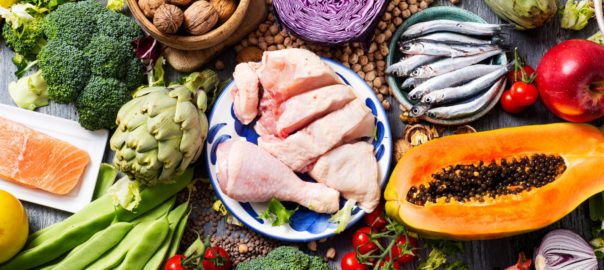When diagnosed with food sensitivities you may find yourself feeling overwhelmed. Especially since the foods you are most likely to develop a sensitivity to are the ones you eat most often. Once diagnosed, either by a doctor or through testing, it's important to have a rotation diet.
What is a Rotation Diet?
In simple terms, a rotation diet means that you are not eating the same foods every day. It's not a specific diet per se, such as Paleo, Keto, Mediterranean, etc, but rather a conscious way of eating that reduces your exposure to food proteins. Following this type of a plan requires you to write out what you can eat without repeating a food more than once every four days. By following a rotation diet plan you are able to eat a variety of foods without building up sensitivities to them. This is because with a four-day gap in consumption you are not overconsuming to the proteins in those particular foods on an everyday basis.
Rotation Diet Basics
Here is an example. When it comes to nuts most people eat a lot of almonds. In fact, they may eat them every day, or even multiple times per day. But by eating almonds every day there is a possibility that you will eventually become hypersensitive to the proteins in them. That would then eventually show up on a delayed hypersensitivity test and you would need to avoid them while working on a program to support gut health. By avoiding the foods that you are identified as sensitive to for 3-6 months and doing a supportive nutrition plan, you can potentially restore your insides to the point that you can eat some of those foods again.
Using the category of nuts and seeds for someone with an almond intolerance this might be a potential plan:
- Day 1 - flax seeds, pistachio, hazelnuts (also called filberts),
- Day 2 - brazil nuts, cashew, pinenuts
- Day 3 - chestnuts, pumpkin seeds, walnuts
- Day 4 - sesame seeds, sunflower seeds, pecan
- Dairy (if tolerated)
- Herbs and Spices
- Fish/Shellfish
- Fruit
- Poultry
- Meat
- Nuts and Seeds
- Oils
- Vegetables
Eggs are included in the poultry category and are consumed with their protein, i.e., chicken eggs with chicken, duck eggs when you are eating duck, turkey, quail, etc.
In the case of severe or a significant number of food intolerances, you may need to follow a rotation diet for an extended period of time while you work on your gut health.


